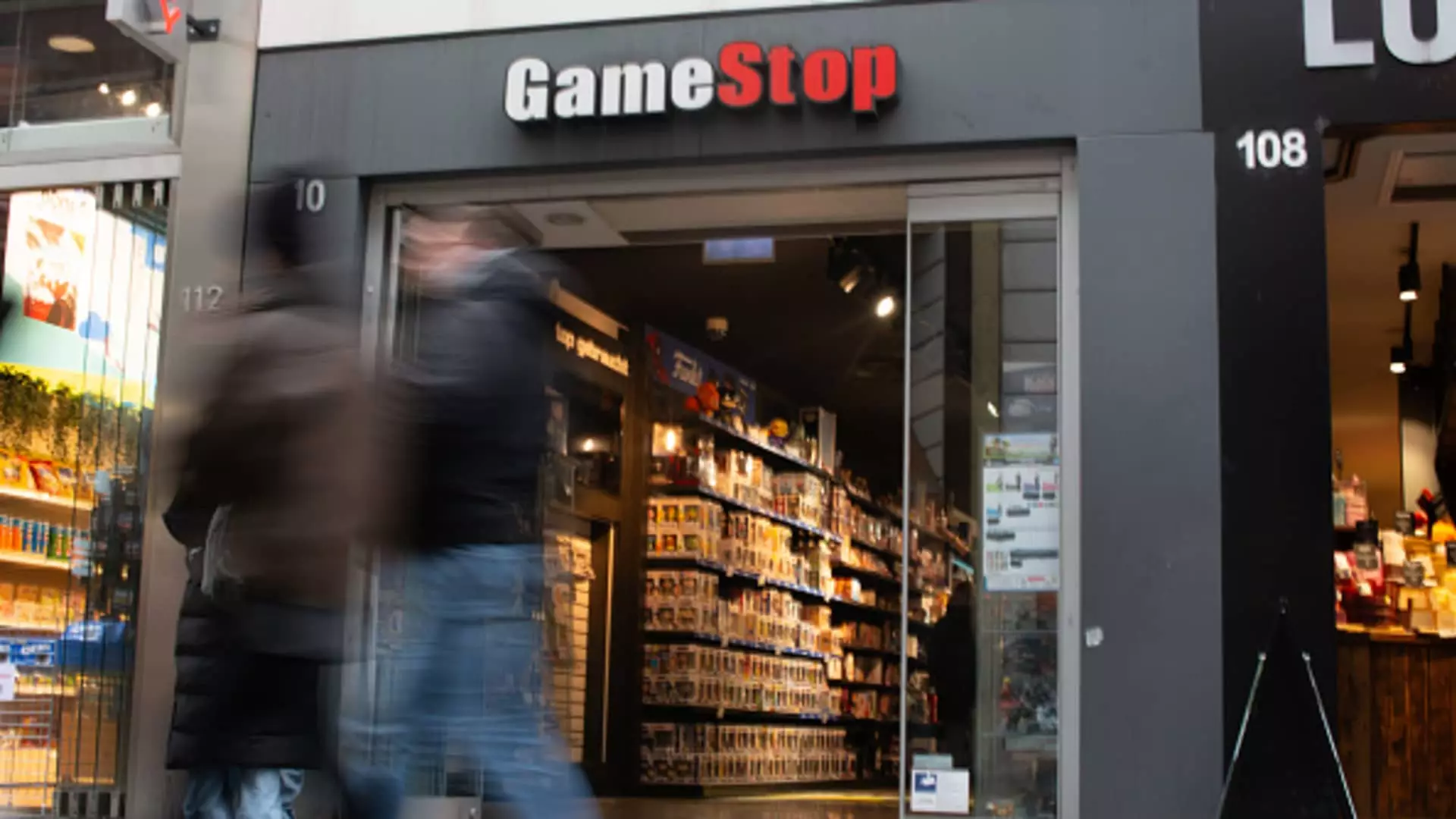The stock market is a complex ecosystem where various factors can lead to fluctuations in company valuations. Even after the regular trading hours end, the market continues to react to earnings reports, strategic decisions, and outlook projections. Several companies stood out in after-hours trading, each exhibiting unique narratives that reflect broader trends within the market. This article dissects the significant moves made by various companies and endeavors to analyze the implications behind their stock price adjustments after the bell.
GameStop, the iconic video game retailer and a favorite among meme-stock investors, displayed resilience with a 7% jump in after-hours trading. Recent reports suggest that the company is contemplating investments in Bitcoin and other cryptocurrencies. This strategy could signify a pivotal shift for GameStop as it explores new revenue streams. However, the company’s decision-making currently hinges on whether such investments align with its overarching business strategy. This cautious approach reflects how GameStop, while being known for volatility and meme-driven trading, is also attempting to establish a more stable, innovative trajectory.
The streaming platform Roku recorded a remarkable 10% rise following its fourth-quarter earnings report, which revealed a narrower-than-anticipated loss of 24 cents per share, outperforming analyst predictions of a 40-cent loss. Furthermore, Roku’s revenue of $1.20 billion surpassed expectations and paved the way for more favorable projections for future earnings. This success illustrates the growing demand for streaming services, reinforcing Roku’s position in a competitive landscape. As consumption patterns evolve, Roku’s ability to adapt will be crucial in maintaining investor confidence and ensuring continued growth.
Airbnb, the vacation rental giant, exhibited a strong performance with a remarkable 12% increase in stock value post-earnings. Reporting 73 cents in earnings per share on $2.48 billion in revenue, Airbnb surpassed both earnings and revenue expectations significantly. This surge indicates a robust recovery for the travel and hospitality industry amidst a post-pandemic landscape. The ability of Airbnb to attract customers demonstrates the resilience of its business model and willingness to innovate in challenging times.
The cryptocurrency exchange Coinbase witnessed a nearly 1% uptick after announcing fourth-quarter earnings that surpassed estimates. With earnings reaching $4.68 per share—far exceeding the expected $1.81—Coinbase is benefiting from a post-election surge in cryptocurrency trading. The firm’s revenue of $2.27 billion also overcame analyst predictions, illustrating the growing interest and investment in digital assets. As the cryptocurrency market continues to evolve, Coinbase’s strategic positioning will be pivotal in capitalizing on future growth opportunities.
In a stark contrast to the encouraging trends elsewhere, Applied Materials saw a 5% drop even after exceeding expectations for its previous quarter’s results. The company’s outlook for the fiscal second quarter underwhelmed analysts, showcasing the high stakes involved in tech manufacturing amid supply chain complexities. Similarly, Twilio faced a 7% decline due to disappointing forecasts for the upcoming quarter. As companies navigate market pressures, sustaining investor trust becomes increasingly challenging, especially when projections fall short.
Palo Alto Networks took a 3% hit in shares despite beating earnings and revenue expectations, demonstrating how investor sentiment can shift based on future guidance. GoDaddy’s shares fell over 3% after its fourth-quarter earnings missed expectations, showcasing how even industry stalwarts are not immune to the rigor of market demands. On the contrary, DraftKings demonstrated strong performance with over a 6% increase as it revised its full-year revenue guidance upward, even though its fourth-quarter results didn’t hit the mark.
Informatica’s stock plummeted by 28% due to an uninspiring outlook for the current quarter, indicating how critical future projections are to investor sentiment. The company’s revised revenue guidance fell short of analyst expectations, emphasizing the importance of strategic foresight in today’s market. This dramatic decline highlights the potential volatility and risks involved in cloud data services, reinforcing the narrative that even high-tech firms are susceptible to economic fluctuations.
The after-hours trading room serves as a litmus test for investor confidence, reflecting the direct impact of earnings reports, strategic directions, and market trends on stock prices. Companies like GameStop, Roku, and Airbnb illustrate the potential for innovation and recovery, while others like Twilio and Informatica remind us of the inherent risks associated with volatility and investor expectations. Understanding these dynamics is essential not only for investors but also for companies aiming to navigate the complex landscape of the stock market successfully. As we move forward, the emphasis on adaptive strategies and clear communications with stakeholders will be crucial in shaping future successes.

